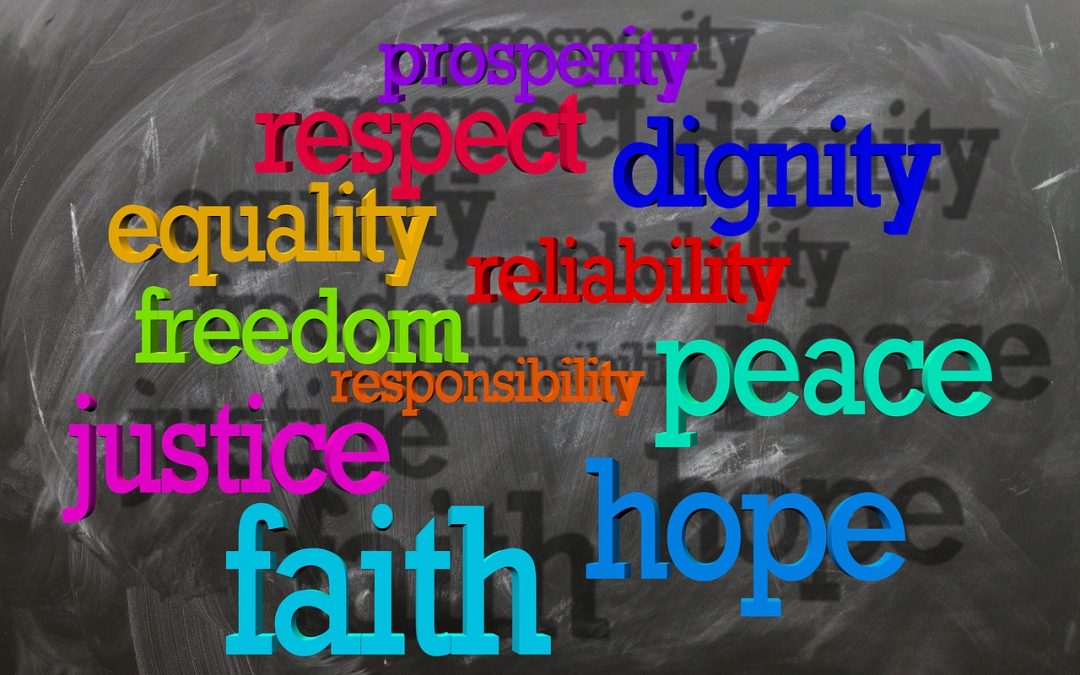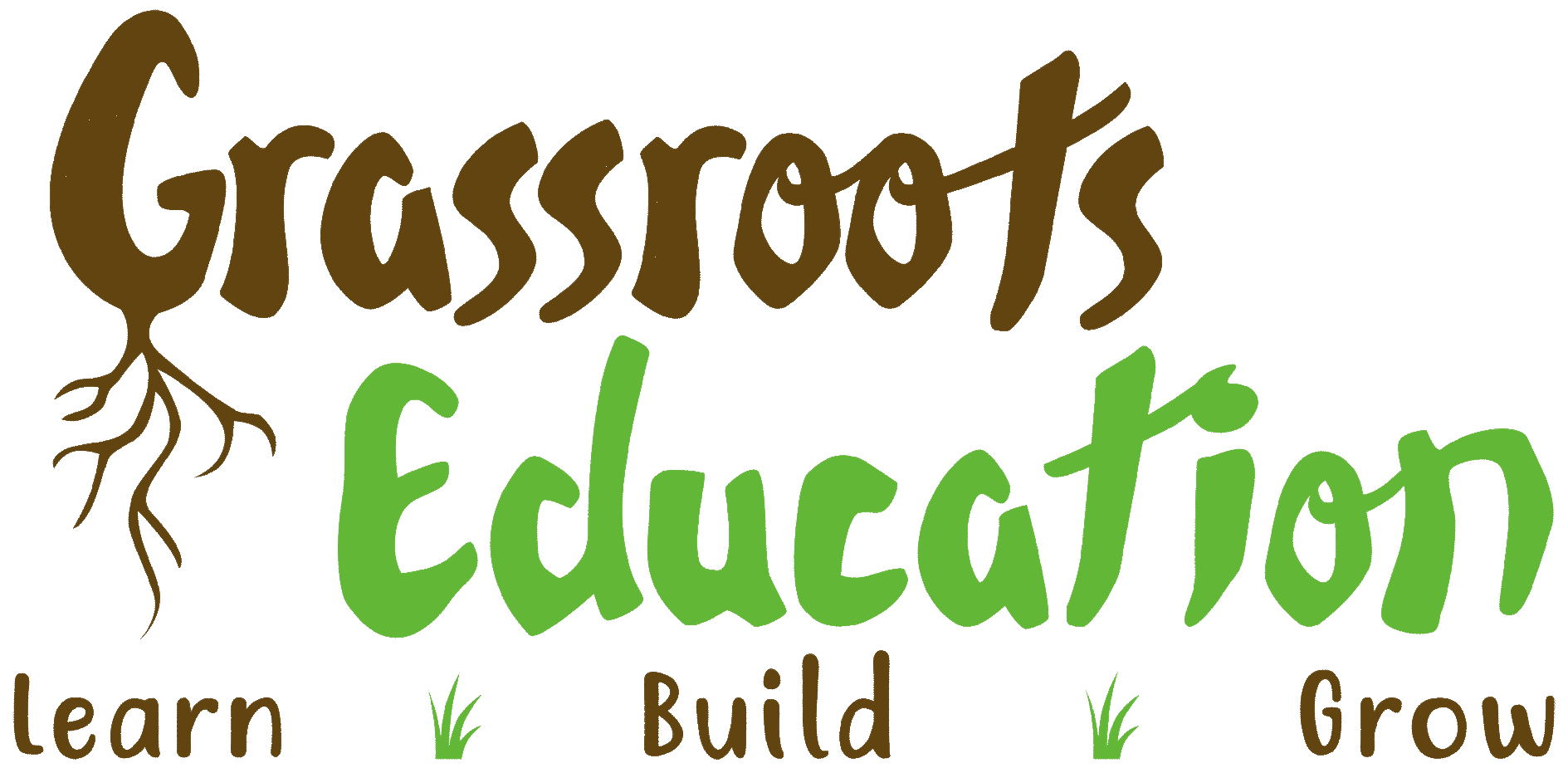
by Marcia Davis-Dawkins | Nov 26, 2019 | Education, Kids, Parents, Teachers
Love is Patient and Kind

By Dr. Marcia Davis-Dawkins
Many of us have heard the words from the Bible, “Love is patient and kind,” 1 Corinthians 13. I have often wondered if we understand what it really means to be “patient and kind” by showing and expressing love. What does it mean? It seems as if, in a world that is so filled with hate and despair, not to mention impatience, that it may be difficult to say that we truly know the meaning of love. It doesn’t seem as if we need to look too far to see all the hatred and disdain that so many people harbor. The cycle keeps going on and on. The news headlines  seem to be filled with lack of love. Where has love and patience gone? In the classrooms and schools in general, the students seem to be filled with sadness through bullying, teasing, and name calling among other unkindness. It sometimes seems unreal, and even frightening, to watch students start out playing and end up fighting and saying unkind words about each other simply because they are so impatient and mean. Where, oh where, did the love go?
seem to be filled with lack of love. Where has love and patience gone? In the classrooms and schools in general, the students seem to be filled with sadness through bullying, teasing, and name calling among other unkindness. It sometimes seems unreal, and even frightening, to watch students start out playing and end up fighting and saying unkind words about each other simply because they are so impatient and mean. Where, oh where, did the love go?
On television, it seems as if the highlight is that teachers and students are fighting and the blatant disrespect is evident. Unkind words are exchanged in the heat of the moment and hurt people continue to hurt people. Everyone is quick to play the blame game instead of putting the shoe on his/her foot. Frustration gets in the way and the love is replaced with heated words and sadness that often lead to loss of lives and friendships. True love shows and tells us how to treat our fellow  classmates, co-workers, peers, spouses and human kind in general. In 2 Corinthians, it explains that true love is not angered easily, is quick to forgive and is always willing to celebrate life with friends, loved ones and just about everyone with whom we interact. Yes, this sounds easier said than done, however, it sets the standards by which we should live. I suppose most people might argue (with kind words) that since prayer and the Bible were taken out of the schools that love left as well. I dare say that 1 Corinthians 13 is the premise on which humankind and love were built. It sets the standards for how we should live by loving each other regardless of color of skin, class, economic status or educational accomplishments. It really makes me feel disheartened when I think of weddings, and then soon after divorces or Valentine’s Day when people simply use the word ” love” so loosely and then days after use the unkind words to tear down their partners. Oh, where is the love?
classmates, co-workers, peers, spouses and human kind in general. In 2 Corinthians, it explains that true love is not angered easily, is quick to forgive and is always willing to celebrate life with friends, loved ones and just about everyone with whom we interact. Yes, this sounds easier said than done, however, it sets the standards by which we should live. I suppose most people might argue (with kind words) that since prayer and the Bible were taken out of the schools that love left as well. I dare say that 1 Corinthians 13 is the premise on which humankind and love were built. It sets the standards for how we should live by loving each other regardless of color of skin, class, economic status or educational accomplishments. It really makes me feel disheartened when I think of weddings, and then soon after divorces or Valentine’s Day when people simply use the word ” love” so loosely and then days after use the unkind words to tear down their partners. Oh, where is the love?
So, it seems as if the lack of love and unkindness are taking center stage these days. It’s almost as if those who show love or kindness are scoffed at, but I believe we cannot give up hope or throw up our arms in frustration; let the peace begin with us. Let kindness and love reign, even in the classroom. It doesn’t hurt to show love to every student with whom we come in contact. It might be the missing link in his or her life. Who knows? This love might be reciprocated and the classroom becomes a garden of love and kindness! It is true that kindness is one of the best ways to show love. Kindness and love can never be wasted; so don’t be stingy with them.
Love for Everyone

by Marcia Davis-Dawkins | Oct 21, 2019 | Education, Kids, Parents, Teachers, Teens
Life is Not About Getting What You Want!

By Dr. Marcia Davis-Dawkins
We often strive for the best and nothing is wrong with that. In fact, I say keep reaching for the stars, since only the best is good enough! However, there is always the “What Ifs?” What if the best I am reaching for is not enough? What if it’s not time yet? Time to get that big promotion, dream job, or even dream house? The question that always haunts us seems to be, “Should I give up trying or find new ways to make it work?” I have come to realize that I should not give up on whatever dreams I have, rather, I should keep striving. The consolation is that life is not about getting what we want immediately, but about working with what we have at the moment until things work out. Will things be ever perfect? Of course not! Perfection for my neighbor might be the ability to find the next meal, while perfection for another might be having a roof over their head and avoiding a life on the streets.
I have come to realize that I should not give up on whatever dreams I have, rather, I should keep striving. The consolation is that life is not about getting what we want immediately, but about working with what we have at the moment until things work out. Will things be ever perfect? Of course not! Perfection for my neighbor might be the ability to find the next meal, while perfection for another might be having a roof over their head and avoiding a life on the streets.
 Seeking perfection may even manifest in the classroom or in studies. One teacher might wish to have the perfect class in terms of behavior, while another teacher might see perfection as being able to communicate effectively with one student. This particular teacher is looking at winning one student at a time instead of the whole group at once. No matter what your goal may be, it is important to remember one solid philosophy that has always worked for me. The good Father won’t give us more than we can bear. He usually takes care of us and give us the “tools” to deal with whatever may come. He will give us strategies to deal with those seemingly unpleasant situations we face.
Seeking perfection may even manifest in the classroom or in studies. One teacher might wish to have the perfect class in terms of behavior, while another teacher might see perfection as being able to communicate effectively with one student. This particular teacher is looking at winning one student at a time instead of the whole group at once. No matter what your goal may be, it is important to remember one solid philosophy that has always worked for me. The good Father won’t give us more than we can bear. He usually takes care of us and give us the “tools” to deal with whatever may come. He will give us strategies to deal with those seemingly unpleasant situations we face.
Life is about working with what we have at the moment. Then again, do we confuse my wants with my needs? There may be times when getting what we want is highly impossible because of our economical situation. I find that sometimes when I want to treat myself, I remind myself that I’ve worked hard for this and I deserve a gift from self. In the classroom, this kind of gift could come in the form of a simple break for students who have worked hard and have gone above and beyond to get work done correctly. The teacher might then give a well deserve and unexpected gift. This gift is seen as encouragement for the students to always work hard on a project/assignment. This might also challenge the student to work harder on another project so there could be more treats. Nothing is more rewarding to me than an educator that has seen a light switched on a student’s face when he or she has gotten a concept. I then know how well it’s worth my time and patience to reteach and retell. Brian Tracey reminded me in his quote, “I’ve found that luck is quite predictable. If you want more luck, take more chances. Be more active. Show up more often.” What say you, do you always get what you want or do you leave everything to luck? Don’t even try to answer immediately simply,
| “Become the impossible, do the unreal, be yourself
and be it all the way.”
– Hindi Krinsky |
Determination and Perseverance

by Marcia Davis-Dawkins | Sep 23, 2019 | Education, Kids, Parents, Teachers
Labels

By Dr. Marcia Davis-Dawkins
In marketing, labeling is used to identify products through branding. This labeling gives customers information about the product. Labeling also tags the products, and customers can differentiate one product from another. Labels have to meet various criteria so that customers can spot brands immediately based upon  symbols or even colors. Likewise, the same process is often utilized with people. Labels can show that we are associated with or we belong to a group or a family – that is why we wear certain brands so that we can identify with – we want to identify with certain labels. For instance, we might want to wear the Nike sneakers or clothes because we want to identify with Michael Jordan, a former popular basketball player.
symbols or even colors. Likewise, the same process is often utilized with people. Labels can show that we are associated with or we belong to a group or a family – that is why we wear certain brands so that we can identify with – we want to identify with certain labels. For instance, we might want to wear the Nike sneakers or clothes because we want to identify with Michael Jordan, a former popular basketball player.
People have different labels for others, for instance, Caucasians sometimes have labels for African Americans, African Americans have labels for African Americans, students have labels for each other, teachers have labels for students, parents have labels for their children and even the school system has labels for students. Interestingly enough, some of these labels can be negative as well as positive. Many times teachers and/or parents label their students/children because of behaviors/or attitudes they have witnessed before. We wear a symbol (similar to a gang), which tells that we are in that group. It seems as if the more we label our students, the more they “wear” the labels and cannot shed them because they believe the labels are theirs for life. Educators sometimes place labels on students that send figurative death sentences for students. These messages send them in holes where they are stuck in a time line and they tell themselves that they will never be good at anything. This in effect allows the students to have low self esteem and they don’t explore their capabilities.
Sometimes when I meet people, one of the first things they say after hearing that I am from Jamaica is a bunch of curse words, as if to say that all Jamaicans curse or it’s a way of greeting. Frankly speaking, I find that offensive. Or a second thing they might even ask if I smoke marijuana and that it is difficult to believe that I have not smoked marijuana! Some of these stereotypical labels definitely send a negative connotation. We use what we hear about others to label others or even use outwards appearance to prejudge.
 As such, educators should focus on and make concerted efforts to adequately and successfully address students’ needs and avoid labels. We place labels on students we don’t even know – we simply make assumptions based on other teachers’ experiences. Instead of labeling or belittling our students or others, we could instead be a mentor to those persons and avoid being judgmental. At times because students or people in general are labeled then they wear the labels that could require wearing masks as an extra “costume.” They wear the masks to cover up inhibitions/shortcomings. People sometimes don’t understand the roles we play so things get complicated and we are misunderstood. We feel as if we are inferior or superior in their world based on the label people place on them. Some people might feel less attractive, less important, less smart or self-confidence might be damaged. So many people grow up believing the negative things people say about them and have not tried to prove them wrong. Most times it cripples them – don’t place people in boxes. Some people in some boxes might be lonely and/or depressed. Let’s try to have a positive mindset as we begin the new school year and beyond. “The time is always right to do what is right.” – Dr. Martin Luther King Jr. There should be no excuses; let us avoid labeling.
As such, educators should focus on and make concerted efforts to adequately and successfully address students’ needs and avoid labels. We place labels on students we don’t even know – we simply make assumptions based on other teachers’ experiences. Instead of labeling or belittling our students or others, we could instead be a mentor to those persons and avoid being judgmental. At times because students or people in general are labeled then they wear the labels that could require wearing masks as an extra “costume.” They wear the masks to cover up inhibitions/shortcomings. People sometimes don’t understand the roles we play so things get complicated and we are misunderstood. We feel as if we are inferior or superior in their world based on the label people place on them. Some people might feel less attractive, less important, less smart or self-confidence might be damaged. So many people grow up believing the negative things people say about them and have not tried to prove them wrong. Most times it cripples them – don’t place people in boxes. Some people in some boxes might be lonely and/or depressed. Let’s try to have a positive mindset as we begin the new school year and beyond. “The time is always right to do what is right.” – Dr. Martin Luther King Jr. There should be no excuses; let us avoid labeling.
Accept You For Who You Are

by Marcia Davis-Dawkins | Sep 9, 2019 | Education, Kids, Parents, Teachers
Teaching – Win or Lose?

By Dr. Marcia A. Davis-Dawkins
Many, many, many years ago I decided to enter the classroom as a teacher, but with much trepidation. Teaching for me was not first on my radar since most of the people in my family were teachers and it just didn’t seem like the career choice because, as most people may know, there is little financial gain in this profession. Needless to say, I did everything (or so it seems) I could to steer from being a teacher. Suffice it to say, when the opportunity presented itself for me to go to college under the stern advisement of my aunt, with whom I lived and was a teacher, I took it, but with a fight. The carefully worded newspaper ad enticed me (rather my aunt who then yelled and made it seem as if it would be a missed opportunity, if not taken) to apply for a spot in the world of teaching. The ad also emphasized that I would have a double career – one in business as well as a teacher of business studies! I was caught, but again, teaching was not my choice. I wanted to be in the business world – an administrative assistant or the first step in being an accountant. As fate would have it, weeks before graduation, I was hired on the spot by the head of the business department of my high school, as a business teacher.
I taught until I migrated and it seemed only fit for me to discard, or so I thought, my teaching career path and decided that I would again study business in a new country. Well, no sooner was I done studying, when I wet my feet in the business world and decided that I would return to my other choice – teaching! I decided that even though, it hasn’t made me rich or famous, it has it rewards. It also has it ups and downs. It also seems as if the days when the teachers were seen as the authoritative figures as well as the disciplinarian are over. Many teachers, including myself, get despondent because of the role reversals in the classroom. Many of us spend our time trying to manage students’ behaviors instead of teaching. It is with lots of hassle, and might I say struggle, because so many of our student enter the classroom with lots of psychological problems, it seems. Some parents who believe that we could be the enemy sometimes challenge us. As it were, because of the challenges and the fights that we can we, at times face, we get despondent and wonder why we entered this journey called teaching. But we are reminded of the students whom we reach and who contact us to say what a great job we did with their students and that our job did not go unnoticed.
One of the advantages of teaching is that teachers can usually wipe the slates clean and start over for each school year, but then there are constant reminders of the headaches; will there be any unfortunate stories or items in the news, school fights involving students or even students and teachers, teachers being taunted, teachers being allegedly complained about, teachers being fired because of unexplained behaviors among other things? Where are the lines drawn? Are we too busy worrying if we are next instead of doing what we loved the most or are we being given a chance to do that which we really enjoy: teach? Can we prove that we care about our students and want to see them succeed?

I often wonder if when interns are in the classroom, based on what they see and/or hear they change their minds about teaching and ask themselves why they bothered to go to college to be a teacher? Without asking them, I usually come to the conclusion that like me, they realized that they are good at teaching and want to make a difference one student at a time. I do know for sure that some interns or even teachers buckle under the pressure of teaching and quit. The reasons may vary. They may think that the students are too disrespectful, the financial rewards are not equal to the stress of teaching, teaching isn’t the right fit for them or simply that they realize that they are horrible teachers!
There is a constant war in my head encouraging me to study to show myself approving, to understand my craft more, as well as to be compensated, but how can I climb the ladder without being an administrator? Is that what I really want to do in education? Maybe I don’t want to be the manager of teachers! I simply want to get better at my craft that I enjoy.
For me, I know that since I won’t get the compensation I want, I must continue to meet the amazing parents, students and even fellow educators; naturally that is a big gain for me. Therefore, it has been a great experience for me, and I still look forward to hearing the wonderful words, “Oh I get it now!” from my students. Let’s be clear here: teaching can cause anxiety and if I am not careful I can be stressed out and possibly lose my mind. I once read, “Our resumes are different from our eulogies – No one will be at my funeral saying I was such a great teacher that I brought test scores up. Of course that would make me feel great, but is that all I am worth— to raise test scores? I think the important thing to me is to make a difference in a child’s life and that will bring inner peace to me.
Interestingly enough, I do think that we get and should use the summer break to evaluate our lives, our career path, our teaching styles and get revived, revitalized and restored. How can we do that? Well, the choice is yours because once we decide to go back using that clean slate, we have to raise the expectation bar and craft out a new school year!
Embracing Change

by Marcia Davis-Dawkins | Jun 23, 2019 | Education, Kids, Parents, Teachers
Read Some More!

By Marcia Davis-Dawkins
It’s that time of the year again, when as educators we ask students to read, read and read again during the summer. We ask our students to read several books and even do book reports and return the book reports the first week of school. For the most part, some students wait until a week before school reopens. Then they try to read book/s in one week, not to mention complete the book report. Ten chances to one, they are not done properly and the point of reading through the summer to encourage learning is missed totally. How can we as educators motivate students to read more during the summer and, as it were, enjoy reading? It saddens me when I heard a student say recently that he couldn’t wait until the end of the school year because he knows that his teacher will give him a book report and he will throw his hands in the air (along with the book) and let his book report directions fly away as he lifts his hands showing his happiness.
Like everything else, we are motivated to do things we enjoy and will want to do them because they make us happy and they won’t be drudgery. One of the things that came to mind is what young Marley Dias initiated. She is an author and public speaker and the youngest member of Forbes’ “30 Under 30.” She started a campaign called #1000blackgirlbooks because she was frustrated that she hadn’t read books in school featuring black children who are main characters and were written by black authors. Marley loves reading and has always loved reading and wants to encourage students to love reading as well and not see it as a form of punishment. Through her initiative students can be exposed to books where the characters resemble them and hence can identify with and feel confident in themselves. I intend to be a part of that initiative by buying some of those books for the students I work with and include books of Latino origins as well. The primary aim is simply to encourage students to read at whatever cost.
I recently read an article about a librarian who had a custom made book bike filled with 250 pounds of books and cycles all over the city of San Pedro. Her aim is to introduce people to reading and how much fun it can be. See article below. Through this awesome program, the librarian has given away 5,000 books to many readers of varying ages. This librarian aimed at “introducing people to the magic of reading.” I have found that many of the students with whom I work, are not even members of the library. They would rather play video games than read! I also spoke with another adult who thinks that libraries are unnecessary, because I-pads and phones are at our fingertips. Of course, I do know that even though electronic devices are at our fingertips, there are still some people who do not have access to electronic devices and need to use the library. Or what if the electronic devices are not working, then going to the library would serve as a big help to fill the gap.
 This school year after seeing some students in the third grade read aloud to a dog. I decided to read more about the benefits of students reading aloud to dogs. I discovered that since most students like dogs, that reading to dogs could help improve the students’ reading skills by reading in an atmosphere that is relaxed. This relaxed atmosphere helps calm them. Reading to dogs can also help to decrease the stress of reading aloud since the dogs are not talking back or ridiculing them. This definitely could improve the students’ self esteem, boost the students’ self-confidence and also encourage them to read more. I did notice also that the dog that was being read to was very calm and was trained to be around students. The students also looked forward to spending time with the dog and really enjoyed reading to the dog. It was evident that they would miss this activity one day per week. One of the students even asked the dog owner if they (the dog and its owner) would return in fall when they were in the fourth grade. In the meantime, I was encouraging my second graders to read more so they can practice to read to the dog in third grade. I felt that it would motivate them to read more and then when they get to third grade they would be more comfortable reading. As educators, we have to do as much as we can to encourage students to be life long readers; after all, reading is everywhere and today’s readers become tomorrow’s leaders!
This school year after seeing some students in the third grade read aloud to a dog. I decided to read more about the benefits of students reading aloud to dogs. I discovered that since most students like dogs, that reading to dogs could help improve the students’ reading skills by reading in an atmosphere that is relaxed. This relaxed atmosphere helps calm them. Reading to dogs can also help to decrease the stress of reading aloud since the dogs are not talking back or ridiculing them. This definitely could improve the students’ self esteem, boost the students’ self-confidence and also encourage them to read more. I did notice also that the dog that was being read to was very calm and was trained to be around students. The students also looked forward to spending time with the dog and really enjoyed reading to the dog. It was evident that they would miss this activity one day per week. One of the students even asked the dog owner if they (the dog and its owner) would return in fall when they were in the fourth grade. In the meantime, I was encouraging my second graders to read more so they can practice to read to the dog in third grade. I felt that it would motivate them to read more and then when they get to third grade they would be more comfortable reading. As educators, we have to do as much as we can to encourage students to be life long readers; after all, reading is everywhere and today’s readers become tomorrow’s leaders!
Work Cited
https://abc7.com/education/librarian-pedals-with-books-on-mission-to-gather-young-readers/1357968/
Education and Success
Check Our NEW Quotes Page too!

by Marcia Davis-Dawkins | May 30, 2019 | Education, Kids, Parents, Teachers, Teens
Pledging

By Dr. Marcia Davis-Dawkins
So many times we have taken pledges, recited pledges, listened to pledges and so on. Do we really know what we are saying? What is a pledge? What is the purpose of a pledge? According to Merriam-Webster Dictionary, a pledge is a solemn promise or undertaking. So for instance, if we were to make a pledge to give money to an organization in need, we have to follow up on the pledge or promise. It sends a message that we are committed to a cause.
Most countries have a National Pledge, which is an oath taken by the country that is recited at a public event. For example, Jamaica has a national pledge which is a promise by the people to serve the country according to their skills and talents of the people. When the pledge is recited it sends a message that the people are taking a stance of oneness and togetherness because the nationals are committed to a cause.
Since the National Pledges are so important and speak of sacrificial love and commitment to nations, I wanted to show the Pledges of Jamaica and the United States of America.
 Jamaica National Pledge/Allegiance
Jamaica National Pledge/Allegiance
Before God and All mankind.
I pledge the love and loyalty of my heart
The wisdom and courage of my mind,
The strength and vigour of my body
in the service of my fellow citizens.
I promise to stand up for justice,
Brotherhood and Peace, to work diligently and creatively,
To think generously and honestly, so that,
Jamaica may, under God, increase in beauty, fellowship and prosperity,
and play her part in advancing the welfare of the whole human race.
 American Pledge of Allegiance
American Pledge of Allegiance
I pledge allegiance to the Flag of the United States of America and
to the Republic for which it stands:
one Nation under God, indivisible, with Liberty
and Justice for all.
Just quickly analyzing the pledges, we can see that they both pledge under oath – as if swearing in court to promise to serve country as well as people of the country. Another word that is included in both of the pledges is, “Justice” for everyone. These pledges encourage oneness and freedom. How is this emphasized oneness and freedom taught in the classroom? Some days I wonder if the students are aware of what unity means and yet each morning the students have to repeat the pledge. In recent years students have seemed so unkind to each other and at times alarmingly so even amongst kindergarteners. “Brotherhood and peace.” – just listening to the students talking to each other, I often question if they understand what those words mean. If they did, they should be able to agree to disagree. There is hardly love for each other – let alone working with each other. While conquering the dilemma on a national level is far too complex to be achieved in the classroom, steps to treat each other respectfully and with dignity are reasonable goals and can be modeled there. The results of failing to do so are too great. The nonfulfillment of school staff and students to behave with dignity, courtesy and respect towards others can harm individuals and impair the functioning of all. In particular, harassment, bullying and victimization can cause fear, stress and anxiety, and impose strains on work, personal and family life. They can lead to illness, accidents, absenteeism, poor performance, an apparent lack of commitment, staff resignation or student withdrawal.
There are ways to remedy the situation and foster acceptance of all. These include, but are not limited to:
- Classroom walls-Many teachers groan when it comes time to decorate the classroom because it seems like such a low return on the time and effort invested. But putting up positive messages in your classroom can do so much more than improve the color scheme. You can include messages encouraging diversity, tolerance, acceptance and making your classroom a safe space. Making your classroom comfortable and accepting as a physical space can help students who are struggling in their personal lives, especially students who have become victimized
- Acknowledge Student and Teacher Emotions- When major events fill people with emotions, as, for example, the result of a presidential election can, it can make the classroom a very emotionally-charged place. One of the best things you can do after a major event is to create a space where everyone can acknowledge those emotions and ask questions freely while moderating the discussion. You can also connect the events to literature and other texts to help students build emotional intelligence.
- Explain Terms and Concepts Related to Current Events- It’s easy for parents and students to get up in arms over politically-charged events and debates, and while you may not be able to talk frankly about your own political leanings, you can at least clarify the meanings of certain words or concepts that are prevalent in the national discussion. For example, some students today may have trouble understanding what it means when a city is a “Sanctuary City”, and helping explain what those are can help the student make an independent decision and keep discussions civil.
- Foster a Sense of Empathy in your Classroom- Some students will probably speak out of turn or act rudely even when you’re trying to create a safe space in class, but by engaging with the student directly in a mindful, non-judgmental way, you can bring more empathy into your classroom. Many teachers consider empathy as the antidote to bullying, and there’s data to back that up. You can bring more empathy into your teaching by encouraging critical thinking and self-reflection.
- Lead by Example- This is much easier said than done, but students are always watching your example, and for every one student that asks a question that might frustrate you, there are four who wished they had spoken up to ask that question too. Remembering to practice empathy and patience isn’t easy, but putting in the effort will pay off by helping your students understand tolerance and making your classroom a safe space. We may not like it, but teachers are leaders to millions of students every day, and we can create a higher standard of behavior by showing students how to treat others with respect and sympathy.
In short, treat each other with dignity and respect, listen to each others’ points of view, recognizing that there may be disagreement, keep discussion and comments on the topic, and off the people and do not use inflammatory or offensive language, sarcasm, or raised voices.
There is a word that I often hear used in many organizations and at functions that I have attended. It is the word, “Harambe” which literally means, “all pull together” in Swahili and is also the official motto of Kenya and appears on its coat of arms. I say we should help to honor our class, and ultimately, our nation, by taking care of each other through human and civil rights.. We shouldn’t simply say it, but make every effort to teach, encourage and implement every part of the pledge according to our country’s pledge or affirmation. After all it begins what step at a time. It was Dorothy Heights who said that, “We had people of all backgrounds coming together – all races, all creeds, all colors, all status in life. And coming together there was a kind of quiet dignity and a kind of sense of caring and a feeling of joint responsibility.”
The Teacher, the Leader


 seem to be filled with lack of love. Where has love and patience gone? In the classrooms and schools in general, the students seem to be filled with sadness through bullying, teasing, and name calling among other unkindness. It sometimes seems unreal, and even frightening, to watch students start out playing and end up fighting and saying unkind words about each other simply because they are so impatient and mean. Where, oh where, did the love go?
seem to be filled with lack of love. Where has love and patience gone? In the classrooms and schools in general, the students seem to be filled with sadness through bullying, teasing, and name calling among other unkindness. It sometimes seems unreal, and even frightening, to watch students start out playing and end up fighting and saying unkind words about each other simply because they are so impatient and mean. Where, oh where, did the love go? classmates, co-workers, peers, spouses and human kind in general. In 2 Corinthians, it explains that true love is not angered easily, is quick to forgive and is always willing to celebrate life with friends, loved ones and just about everyone with whom we interact. Yes, this sounds easier said than done, however, it sets the standards by which we should live. I suppose most people might argue (with kind words) that since prayer and the Bible were taken out of the schools that love left as well. I dare say that 1 Corinthians 13 is the premise on which humankind and love were built. It sets the standards for how we should live by loving each other regardless of color of skin, class, economic status or educational accomplishments. It really makes me feel disheartened when I think of weddings, and then soon after divorces or Valentine’s Day when people simply use the word ” love” so loosely and then days after use the unkind words to tear down their partners. Oh, where is the love?
classmates, co-workers, peers, spouses and human kind in general. In 2 Corinthians, it explains that true love is not angered easily, is quick to forgive and is always willing to celebrate life with friends, loved ones and just about everyone with whom we interact. Yes, this sounds easier said than done, however, it sets the standards by which we should live. I suppose most people might argue (with kind words) that since prayer and the Bible were taken out of the schools that love left as well. I dare say that 1 Corinthians 13 is the premise on which humankind and love were built. It sets the standards for how we should live by loving each other regardless of color of skin, class, economic status or educational accomplishments. It really makes me feel disheartened when I think of weddings, and then soon after divorces or Valentine’s Day when people simply use the word ” love” so loosely and then days after use the unkind words to tear down their partners. Oh, where is the love?

 I have come to realize that I should not give up on whatever dreams I have, rather, I should keep striving. The consolation is that life is not about getting what we want immediately, but about working with what we have at the moment until things work out. Will things be ever perfect? Of course not! Perfection for my neighbor might be the ability to find the next meal, while perfection for another might be having a roof over their head and avoiding a life on the streets.
I have come to realize that I should not give up on whatever dreams I have, rather, I should keep striving. The consolation is that life is not about getting what we want immediately, but about working with what we have at the moment until things work out. Will things be ever perfect? Of course not! Perfection for my neighbor might be the ability to find the next meal, while perfection for another might be having a roof over their head and avoiding a life on the streets. Seeking perfection may even manifest in the classroom or in studies. One teacher might wish to have the perfect class in terms of behavior, while another teacher might see perfection as being able to communicate effectively with one student. This particular teacher is looking at winning one student at a time instead of the whole group at once. No matter what your goal may be, it is important to remember one solid philosophy that has always worked for me. The good Father won’t give us more than we can bear. He usually takes care of us and give us the “tools” to deal with whatever may come. He will give us strategies to deal with those seemingly unpleasant situations we face.
Seeking perfection may even manifest in the classroom or in studies. One teacher might wish to have the perfect class in terms of behavior, while another teacher might see perfection as being able to communicate effectively with one student. This particular teacher is looking at winning one student at a time instead of the whole group at once. No matter what your goal may be, it is important to remember one solid philosophy that has always worked for me. The good Father won’t give us more than we can bear. He usually takes care of us and give us the “tools” to deal with whatever may come. He will give us strategies to deal with those seemingly unpleasant situations we face.
 symbols or even colors. Likewise, the same process is often utilized with people. Labels can show that we are associated with or we belong to a group or a family – that is why we wear certain brands so that we can identify with – we want to identify with certain labels. For instance, we might want to wear the Nike sneakers or clothes because we want to identify with Michael Jordan, a former popular basketball player.
symbols or even colors. Likewise, the same process is often utilized with people. Labels can show that we are associated with or we belong to a group or a family – that is why we wear certain brands so that we can identify with – we want to identify with certain labels. For instance, we might want to wear the Nike sneakers or clothes because we want to identify with Michael Jordan, a former popular basketball player. As such, educators should focus on and make concerted efforts to adequately and successfully address students’ needs and avoid labels. We place labels on students we don’t even know – we simply make assumptions based on other teachers’ experiences. Instead of labeling or belittling our students or others, we could instead be a mentor to those persons and avoid being judgmental. At times because students or people in general are labeled then they wear the labels that could require wearing masks as an extra “costume.” They wear the masks to cover up inhibitions/shortcomings. People sometimes don’t understand the roles we play so things get complicated and we are misunderstood. We feel as if we are inferior or superior in their world based on the label people place on them. Some people might feel less attractive, less important, less smart or self-confidence might be damaged. So many people grow up believing the negative things people say about them and have not tried to prove them wrong. Most times it cripples them – don’t place people in boxes. Some people in some boxes might be lonely and/or depressed. Let’s try to have a positive mindset as we begin the new school year and beyond. “
As such, educators should focus on and make concerted efforts to adequately and successfully address students’ needs and avoid labels. We place labels on students we don’t even know – we simply make assumptions based on other teachers’ experiences. Instead of labeling or belittling our students or others, we could instead be a mentor to those persons and avoid being judgmental. At times because students or people in general are labeled then they wear the labels that could require wearing masks as an extra “costume.” They wear the masks to cover up inhibitions/shortcomings. People sometimes don’t understand the roles we play so things get complicated and we are misunderstood. We feel as if we are inferior or superior in their world based on the label people place on them. Some people might feel less attractive, less important, less smart or self-confidence might be damaged. So many people grow up believing the negative things people say about them and have not tried to prove them wrong. Most times it cripples them – don’t place people in boxes. Some people in some boxes might be lonely and/or depressed. Let’s try to have a positive mindset as we begin the new school year and beyond. “




 This school year after seeing some students in the third grade read aloud to a dog. I decided to read more about the benefits of students reading aloud to dogs. I discovered that since most students like dogs, that reading to dogs could help improve the students’ reading skills by reading in an atmosphere that is relaxed. This relaxed atmosphere helps calm them. Reading to dogs can also help to decrease the stress of reading aloud since the dogs are not talking back or ridiculing them. This definitely could improve the students’ self esteem, boost the students’ self-confidence and also encourage them to read more. I did notice also that the dog that was being read to was very calm and was trained to be around students. The students also looked forward to spending time with the dog and really enjoyed reading to the dog. It was evident that they would miss this activity one day per week. One of the students even asked the dog owner if they (the dog and its owner) would return in fall when they were in the fourth grade. In the meantime, I was encouraging my second graders to read more so they can practice to read to the dog in third grade. I felt that it would motivate them to read more and then when they get to third grade they would be more comfortable reading. As educators, we have to do as much as we can to encourage students to be life long readers; after all, reading is everywhere and today’s readers become tomorrow’s leaders!
This school year after seeing some students in the third grade read aloud to a dog. I decided to read more about the benefits of students reading aloud to dogs. I discovered that since most students like dogs, that reading to dogs could help improve the students’ reading skills by reading in an atmosphere that is relaxed. This relaxed atmosphere helps calm them. Reading to dogs can also help to decrease the stress of reading aloud since the dogs are not talking back or ridiculing them. This definitely could improve the students’ self esteem, boost the students’ self-confidence and also encourage them to read more. I did notice also that the dog that was being read to was very calm and was trained to be around students. The students also looked forward to spending time with the dog and really enjoyed reading to the dog. It was evident that they would miss this activity one day per week. One of the students even asked the dog owner if they (the dog and its owner) would return in fall when they were in the fourth grade. In the meantime, I was encouraging my second graders to read more so they can practice to read to the dog in third grade. I felt that it would motivate them to read more and then when they get to third grade they would be more comfortable reading. As educators, we have to do as much as we can to encourage students to be life long readers; after all, reading is everywhere and today’s readers become tomorrow’s leaders!
 Jamaica National Pledge/Allegiance
Jamaica National Pledge/Allegiance American Pledge of Allegiance
American Pledge of Allegiance